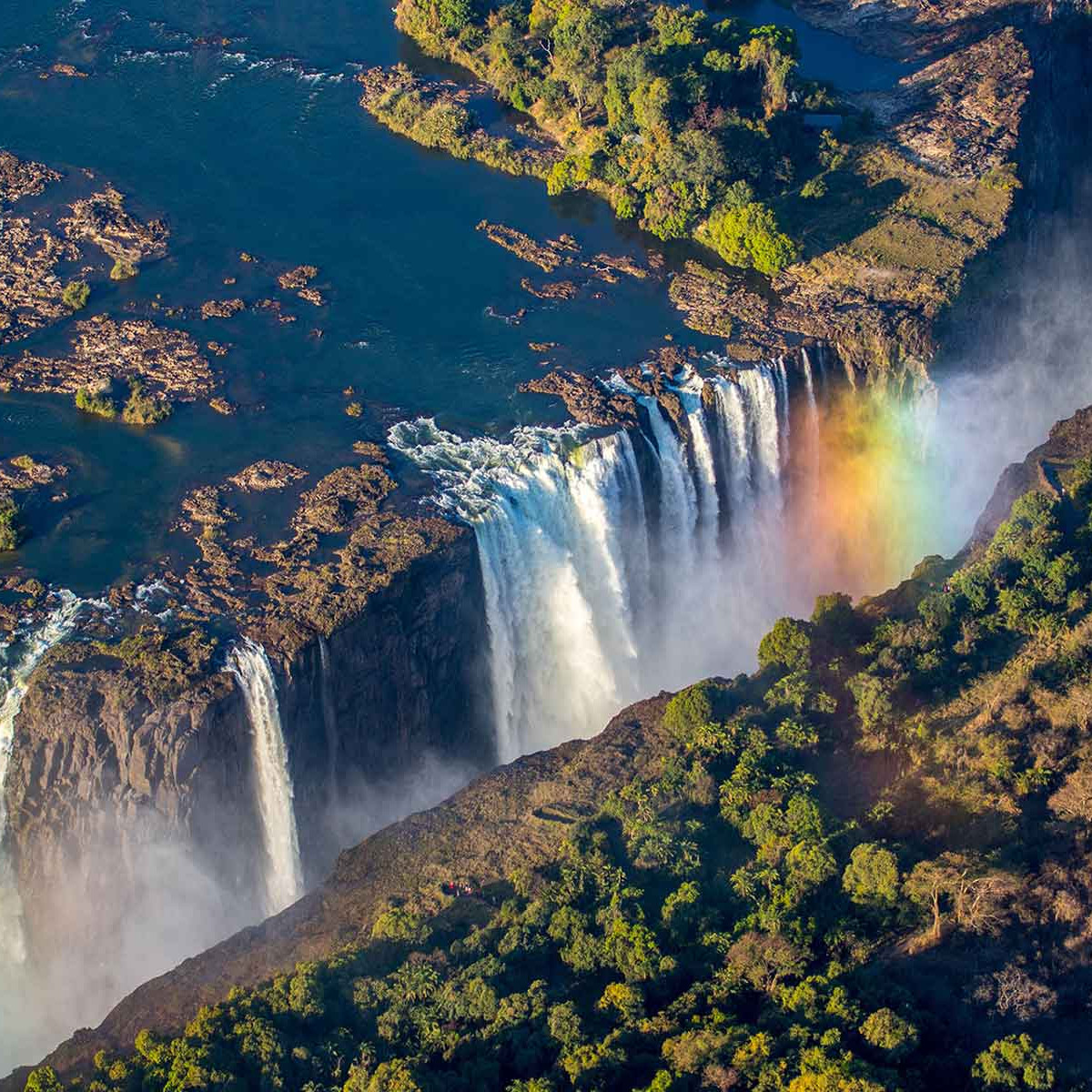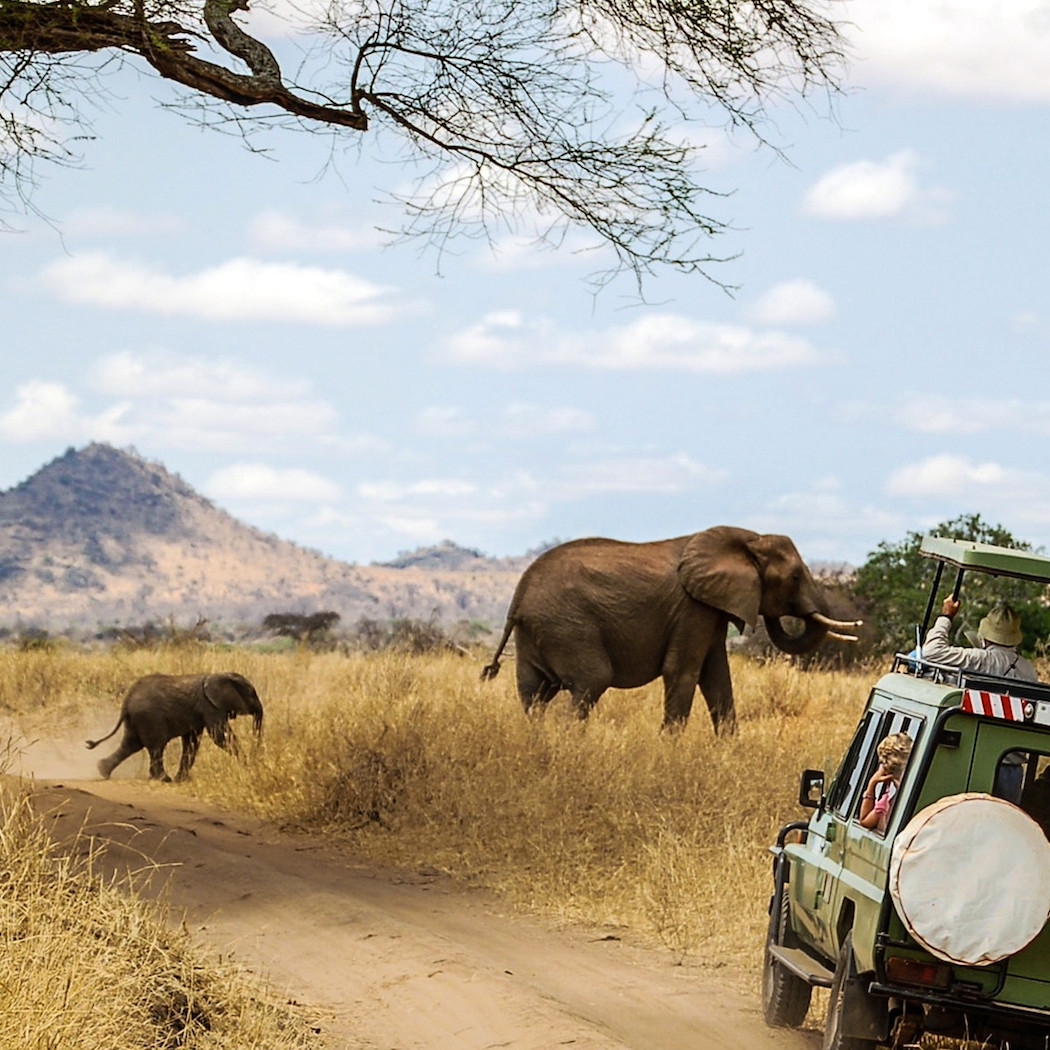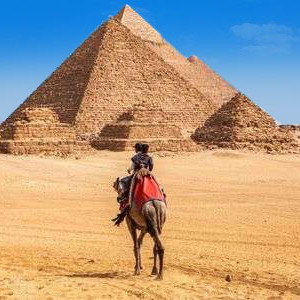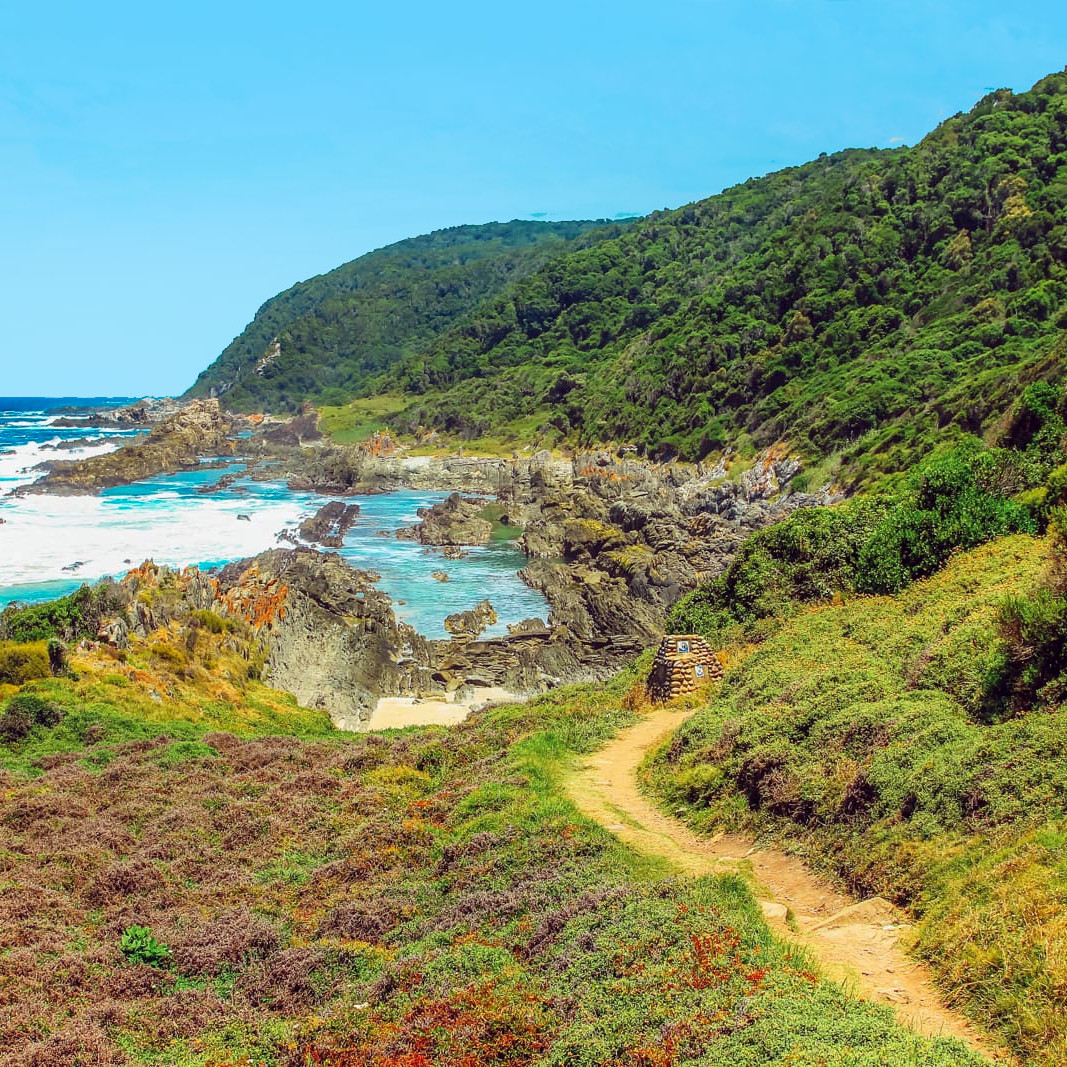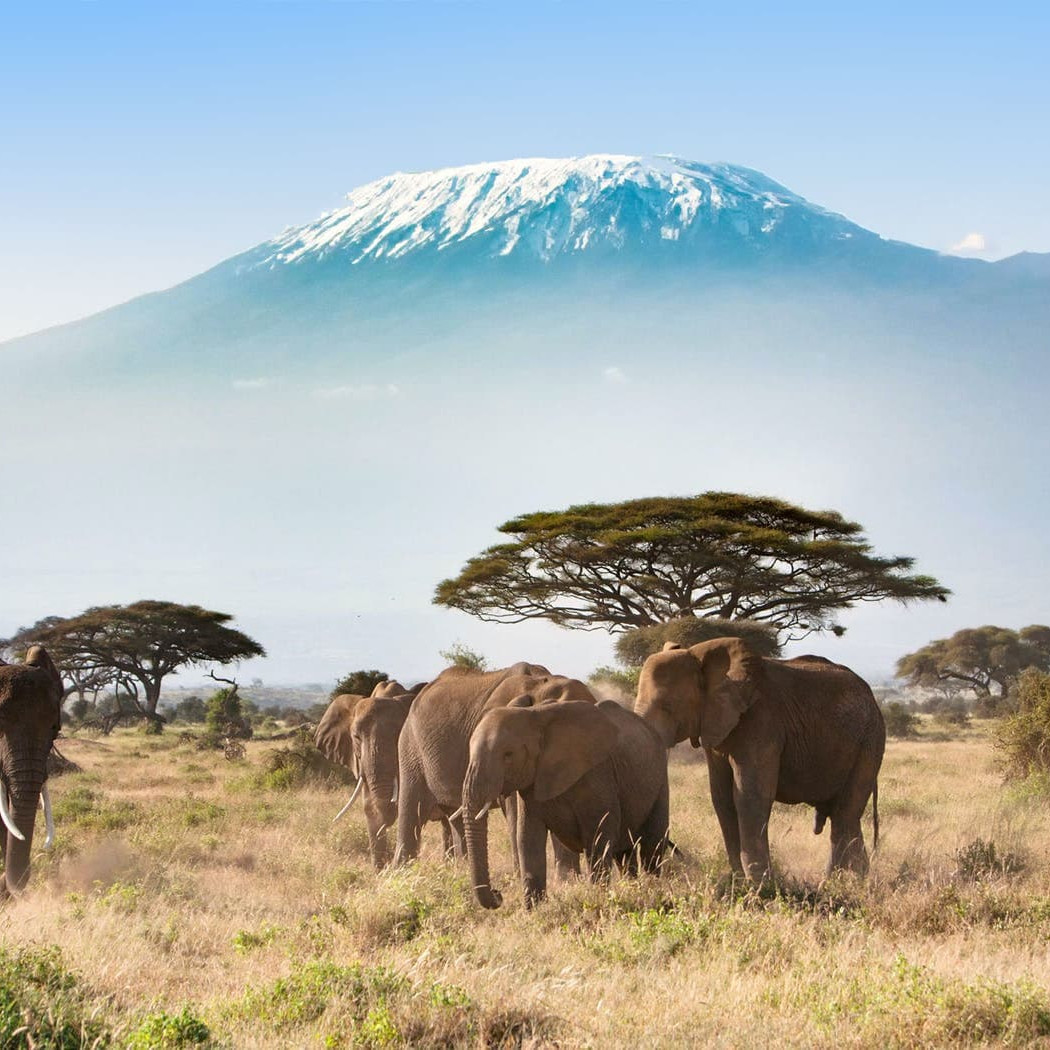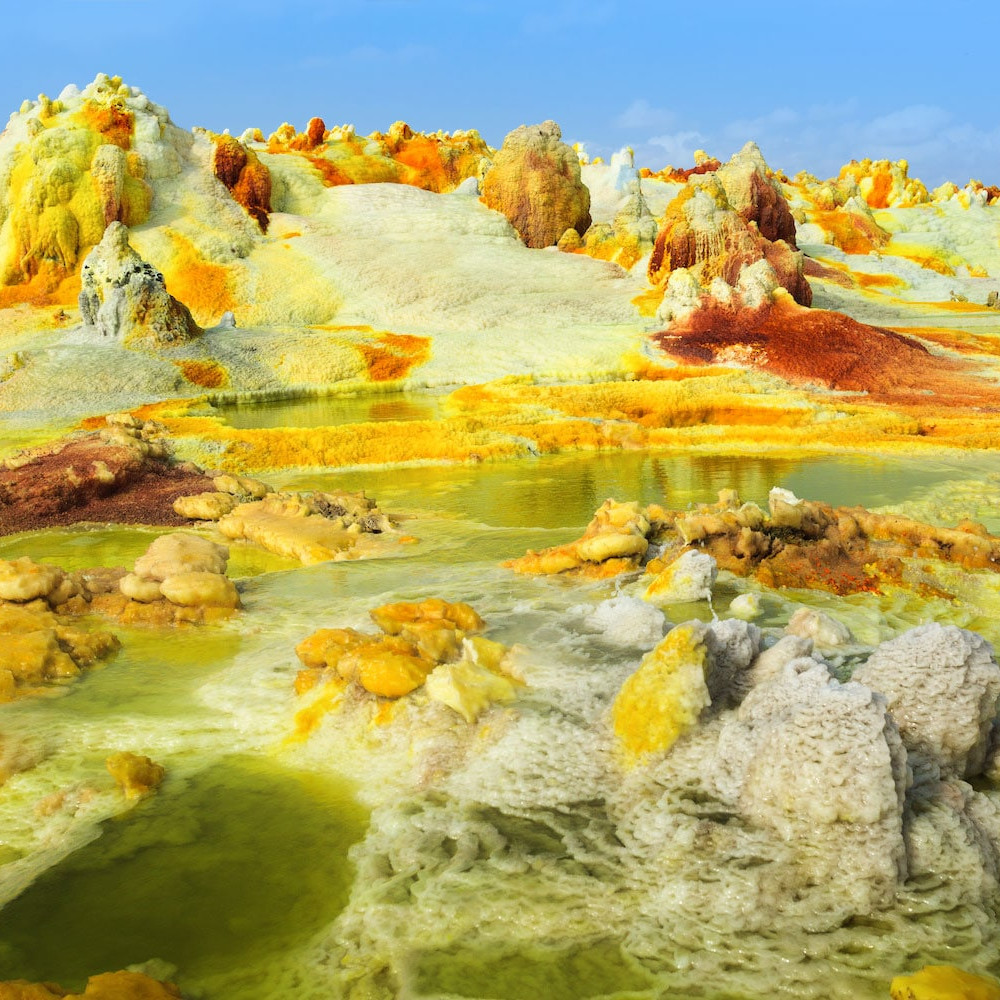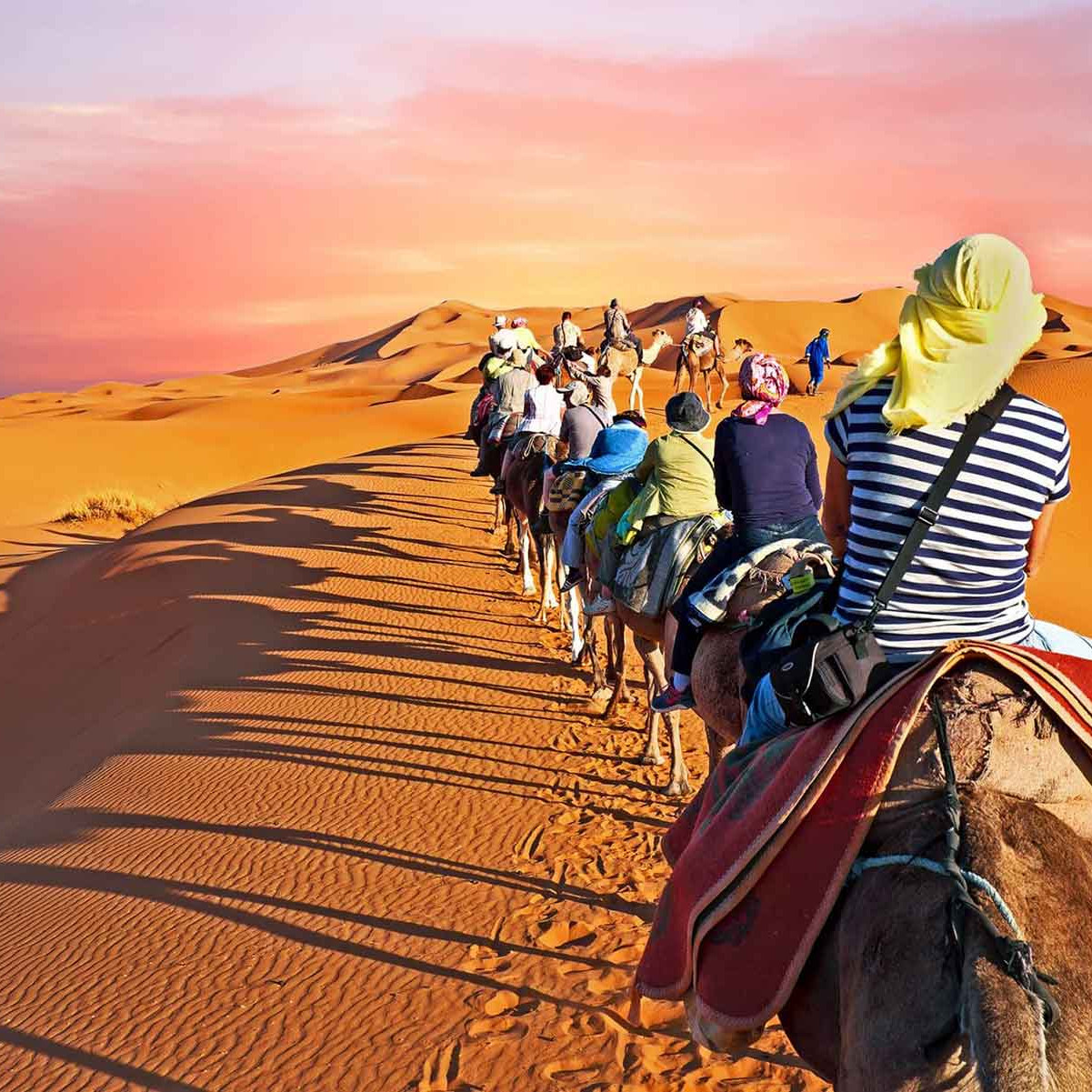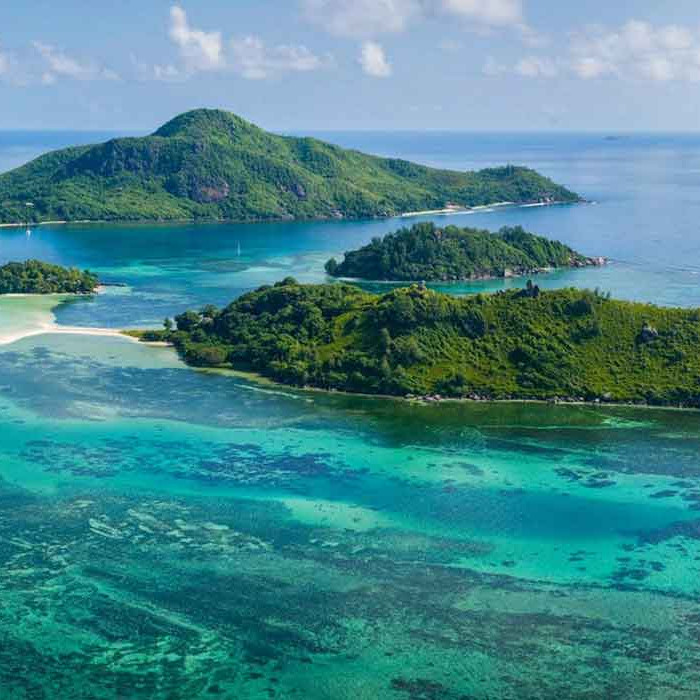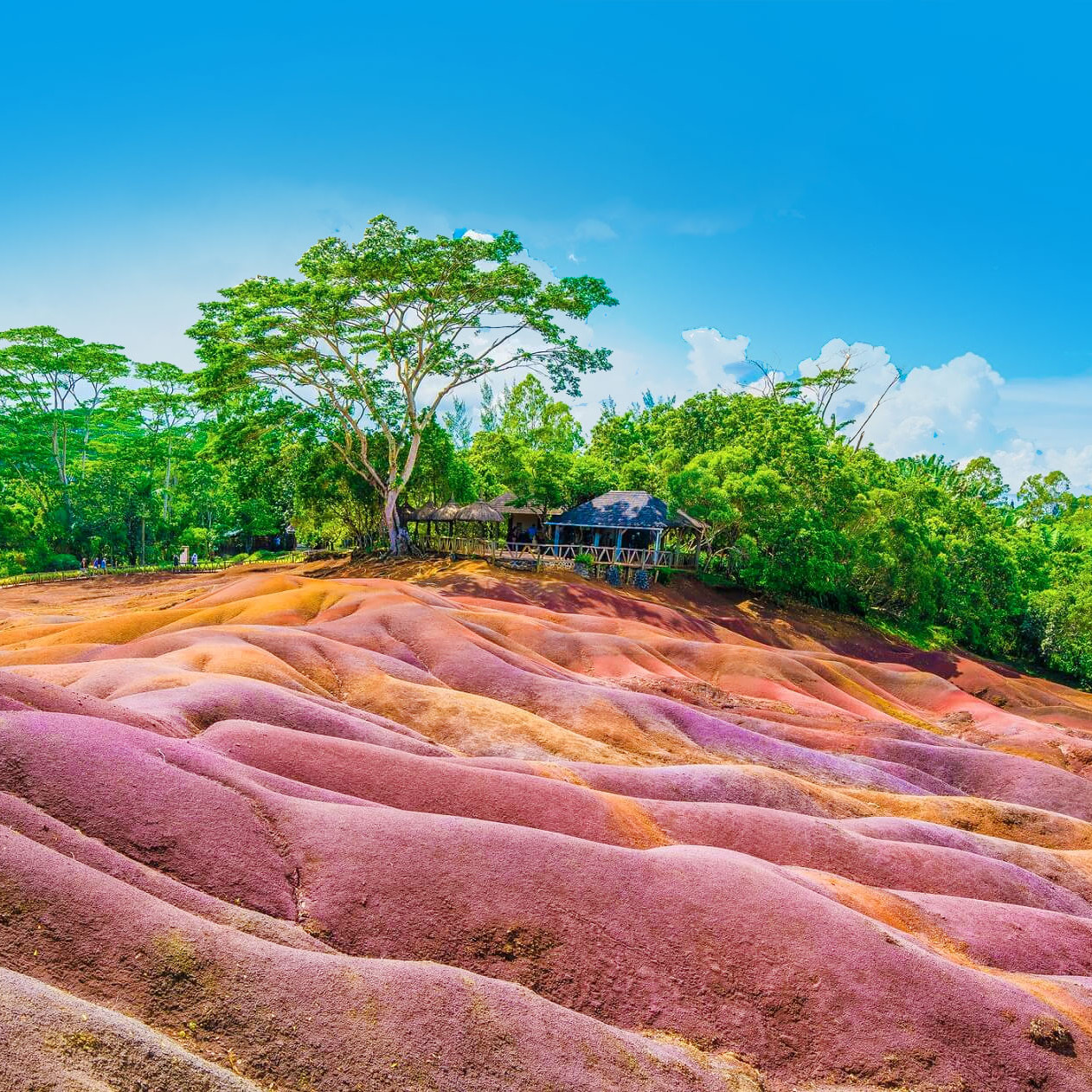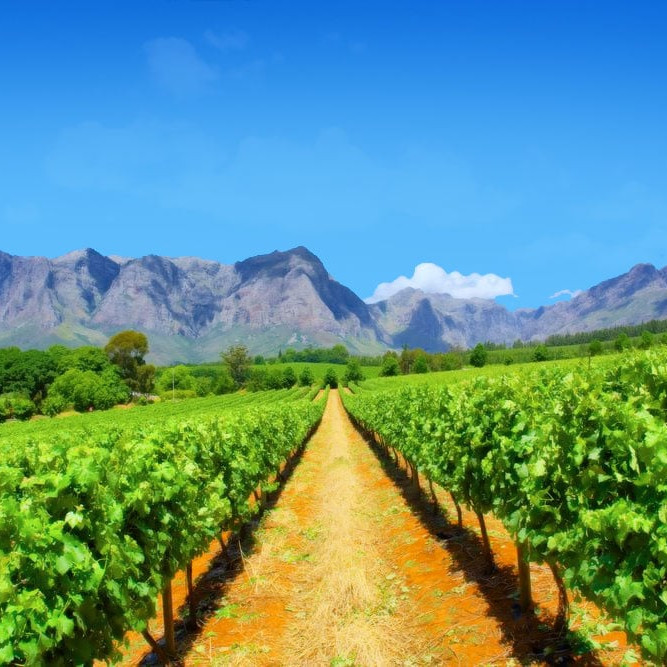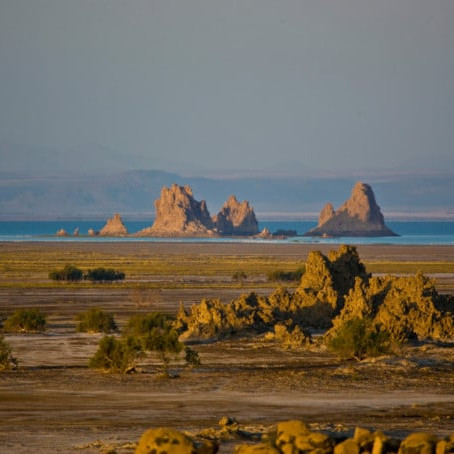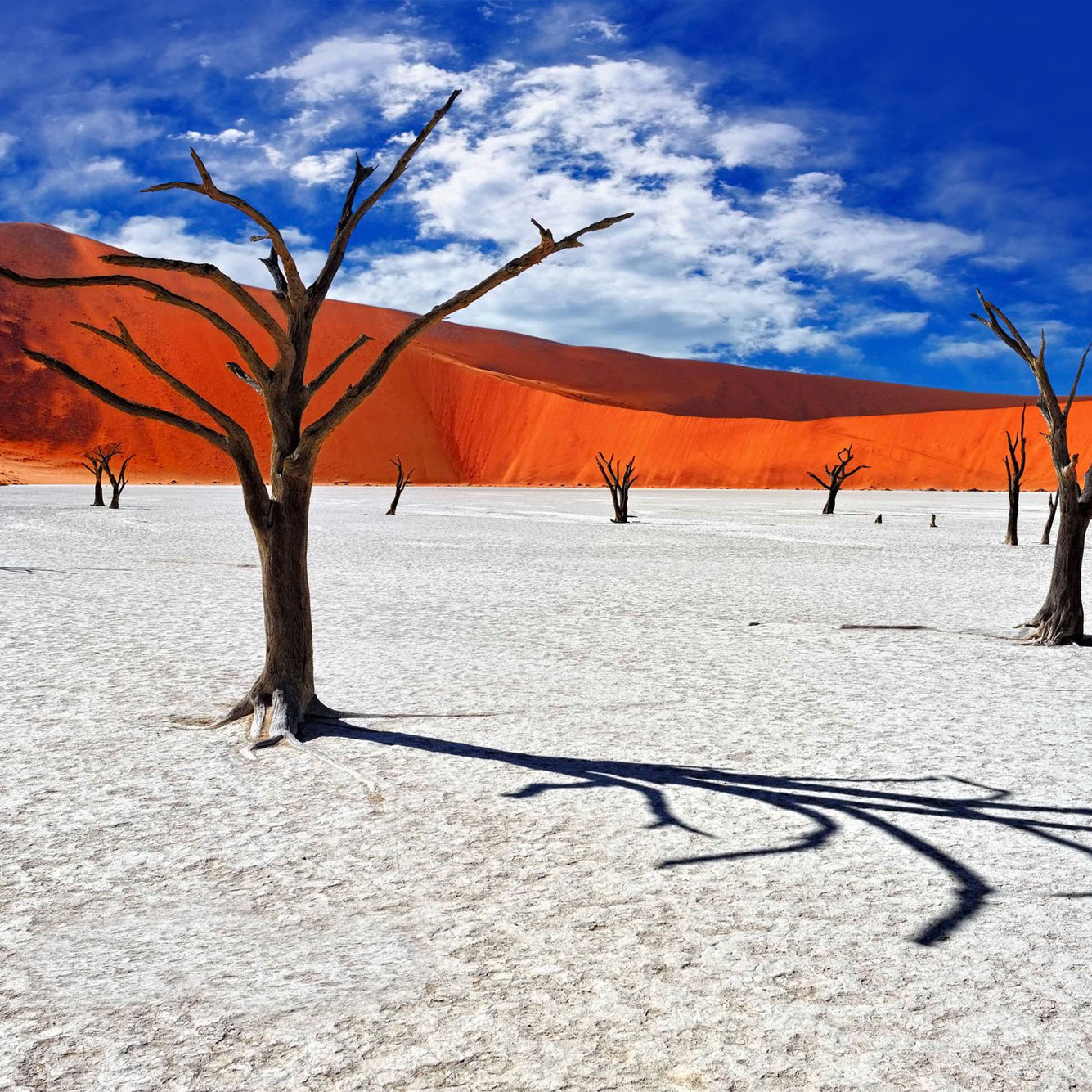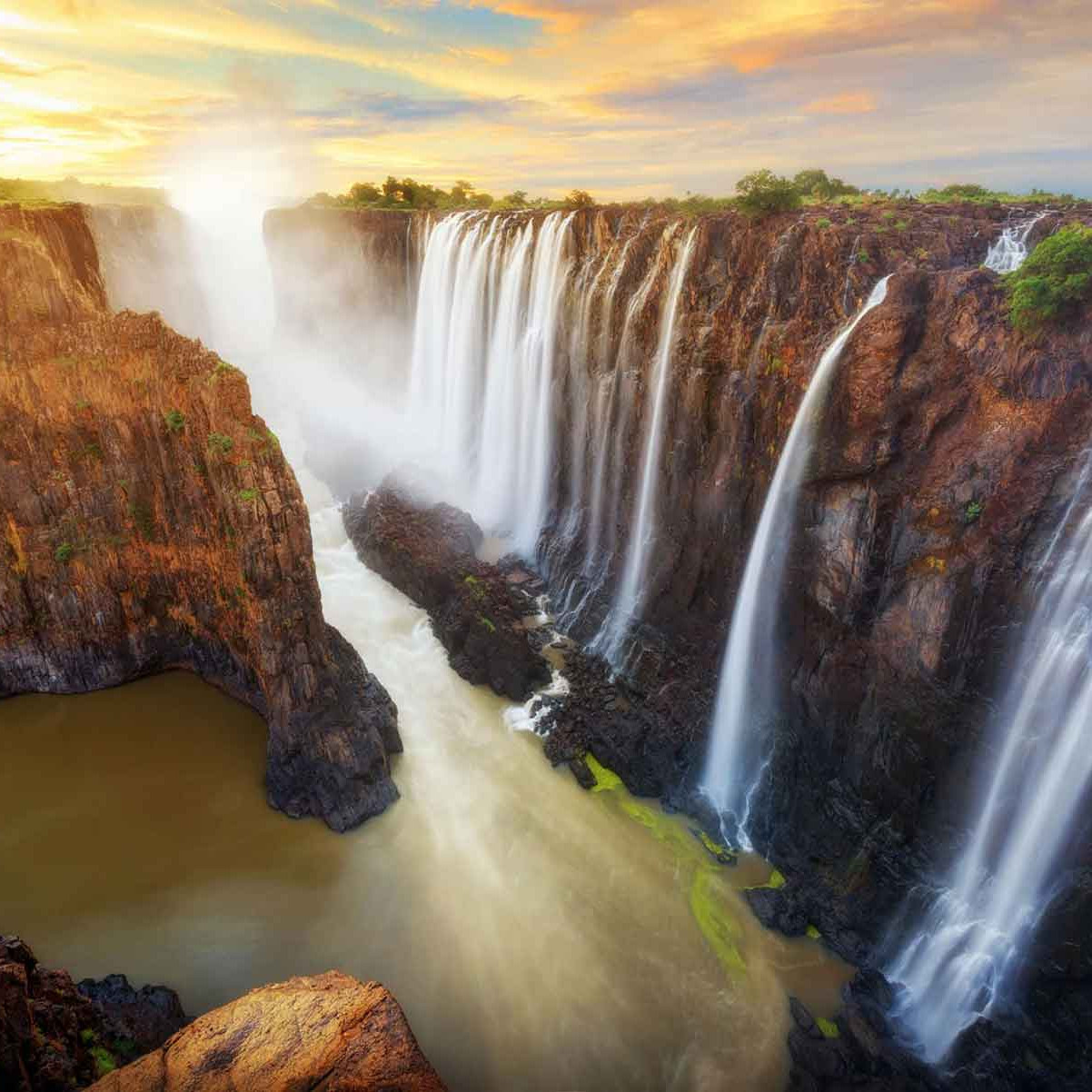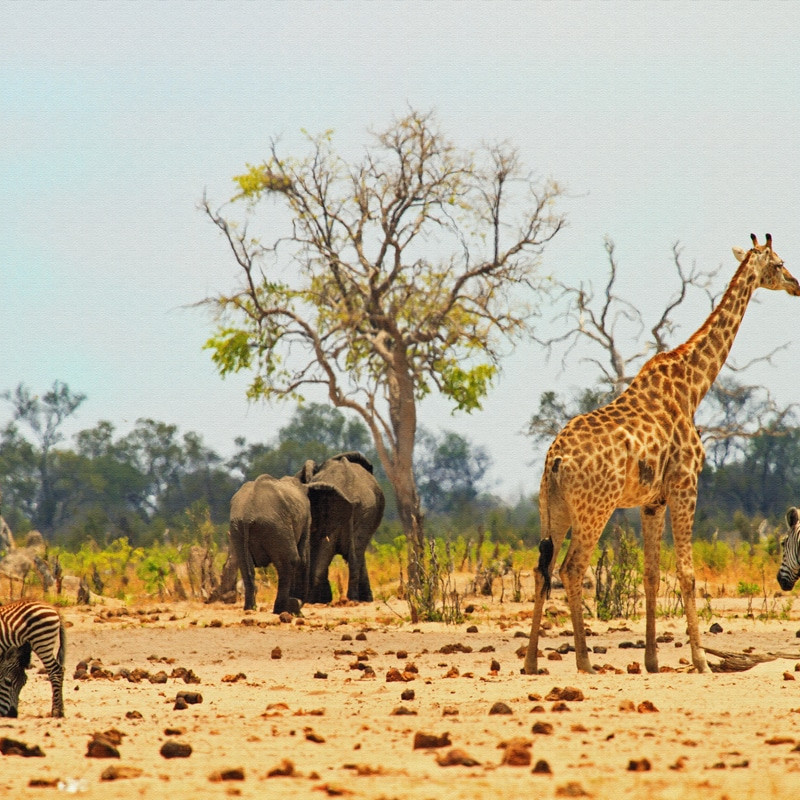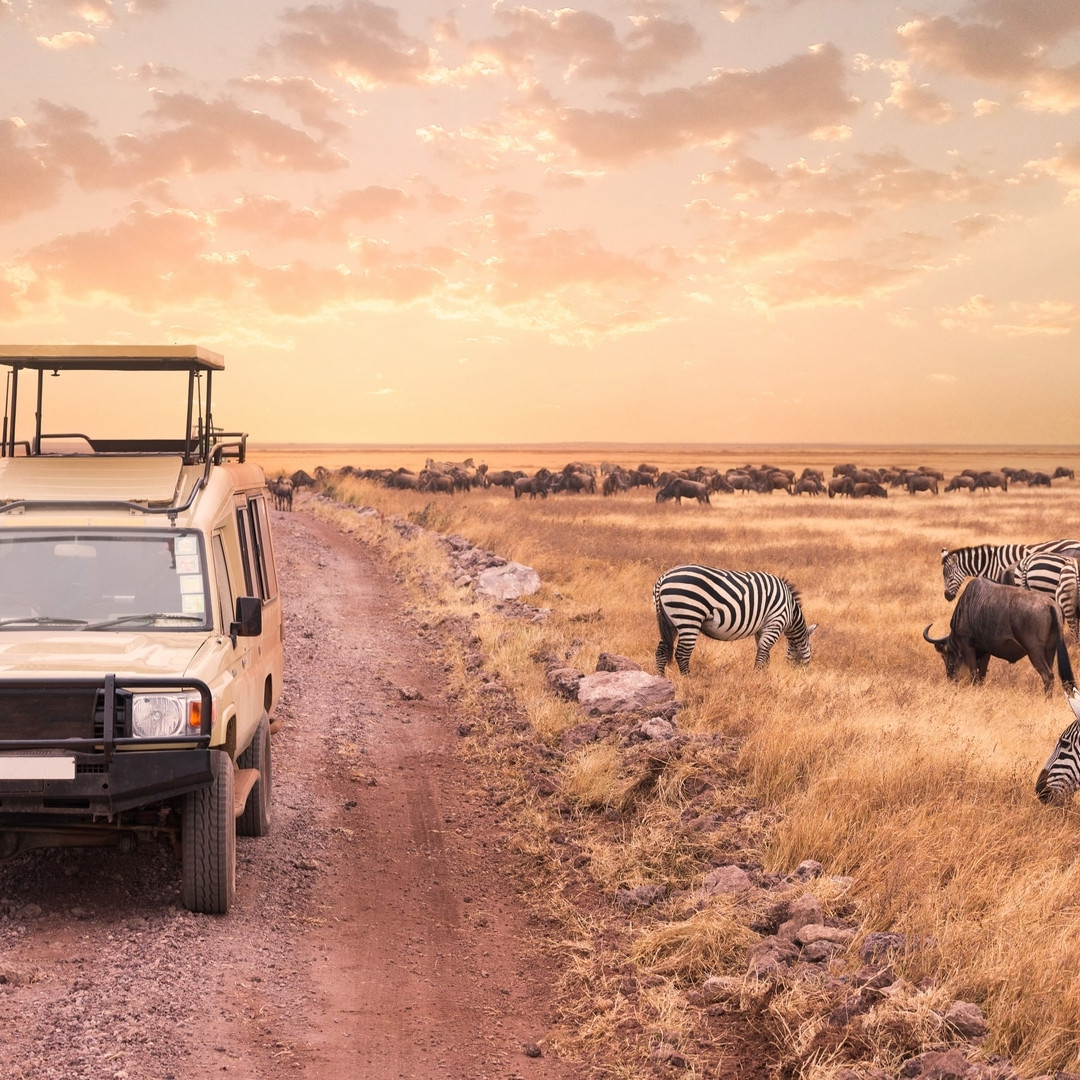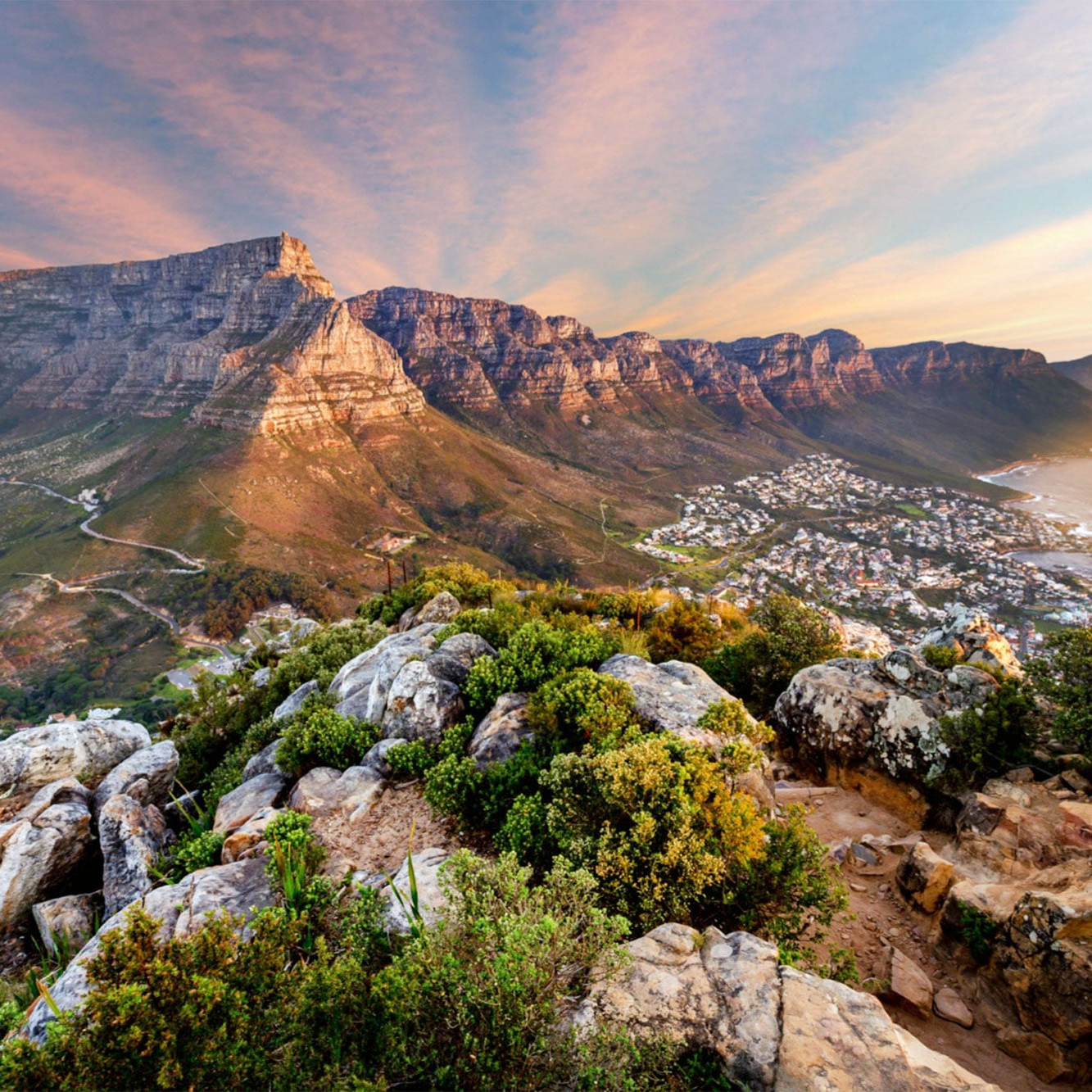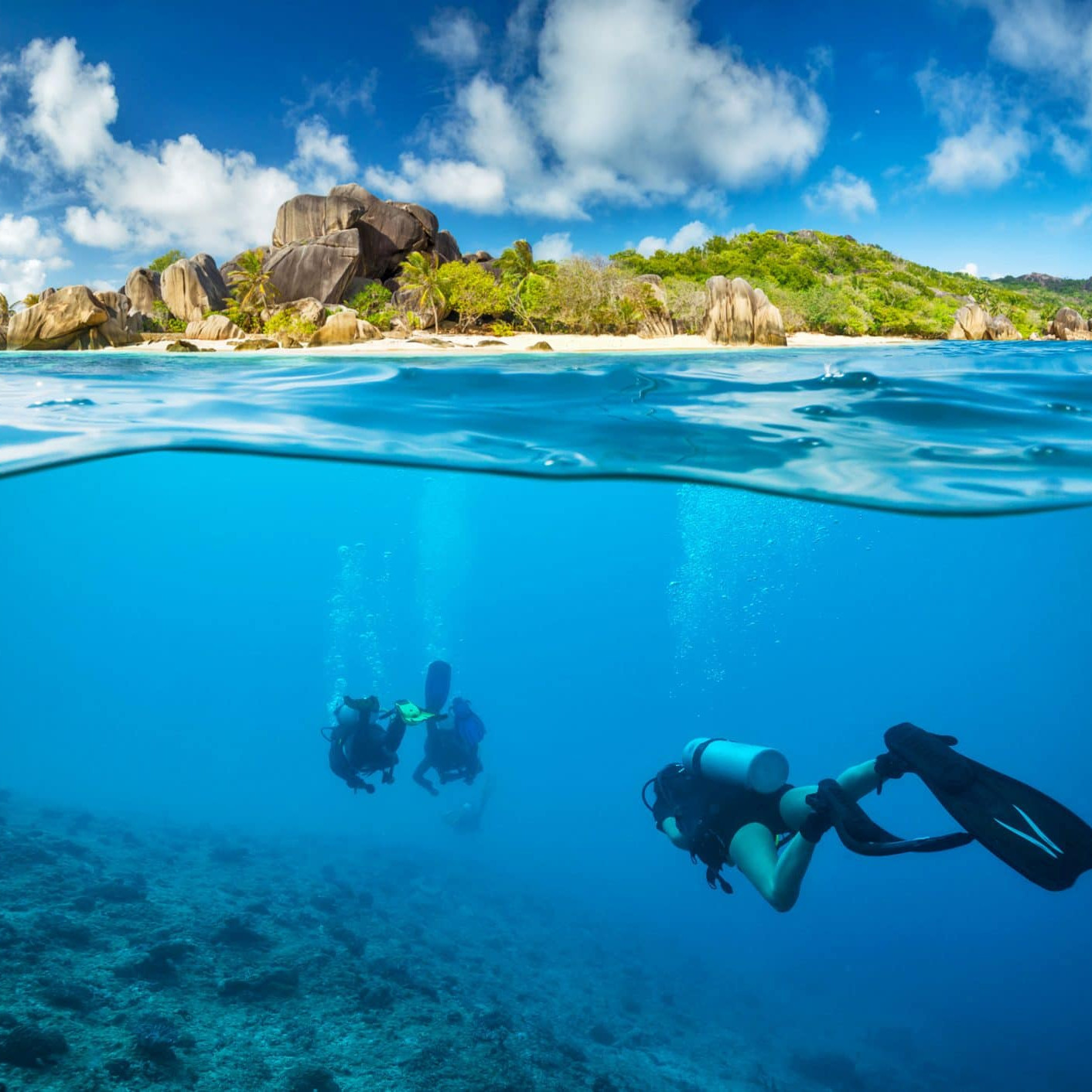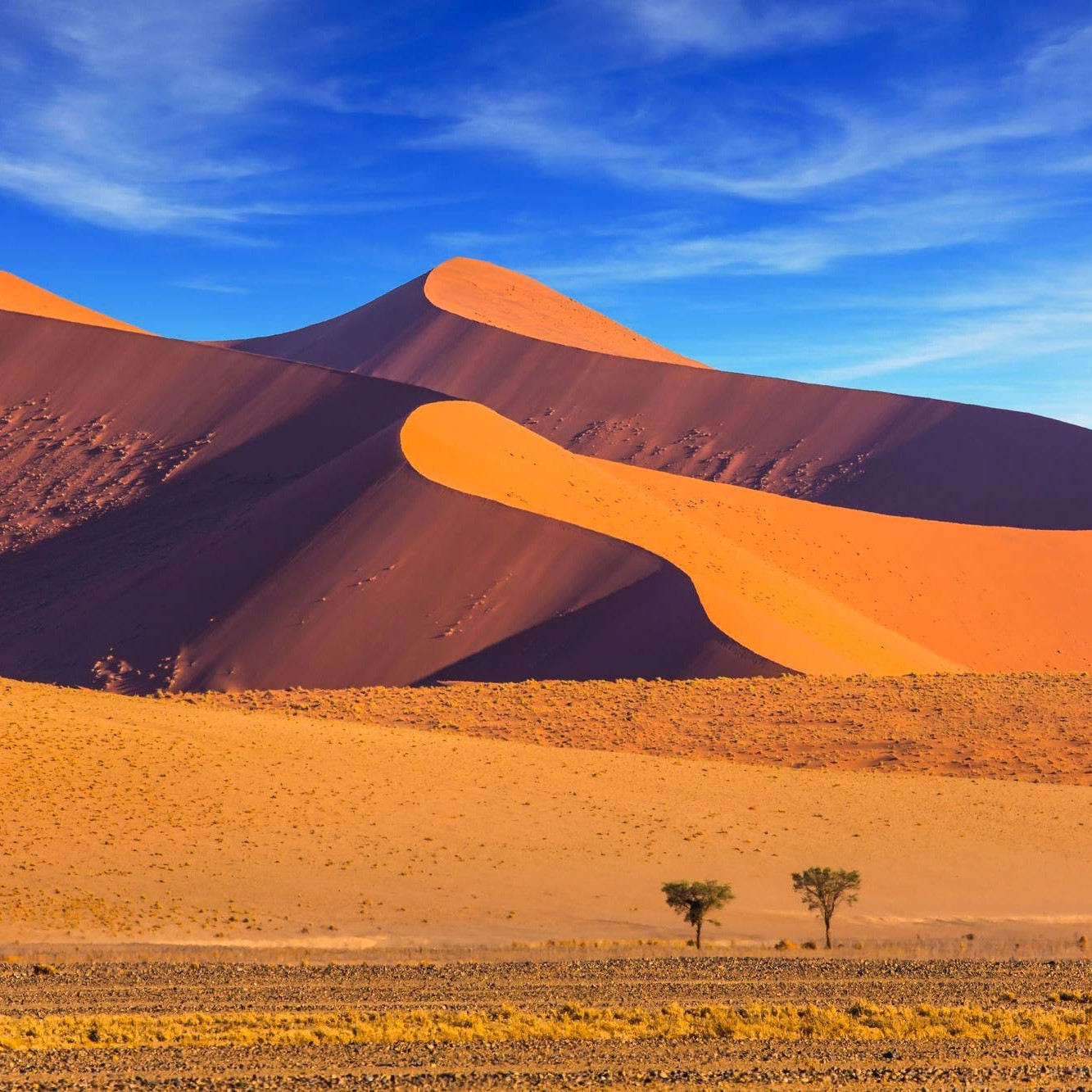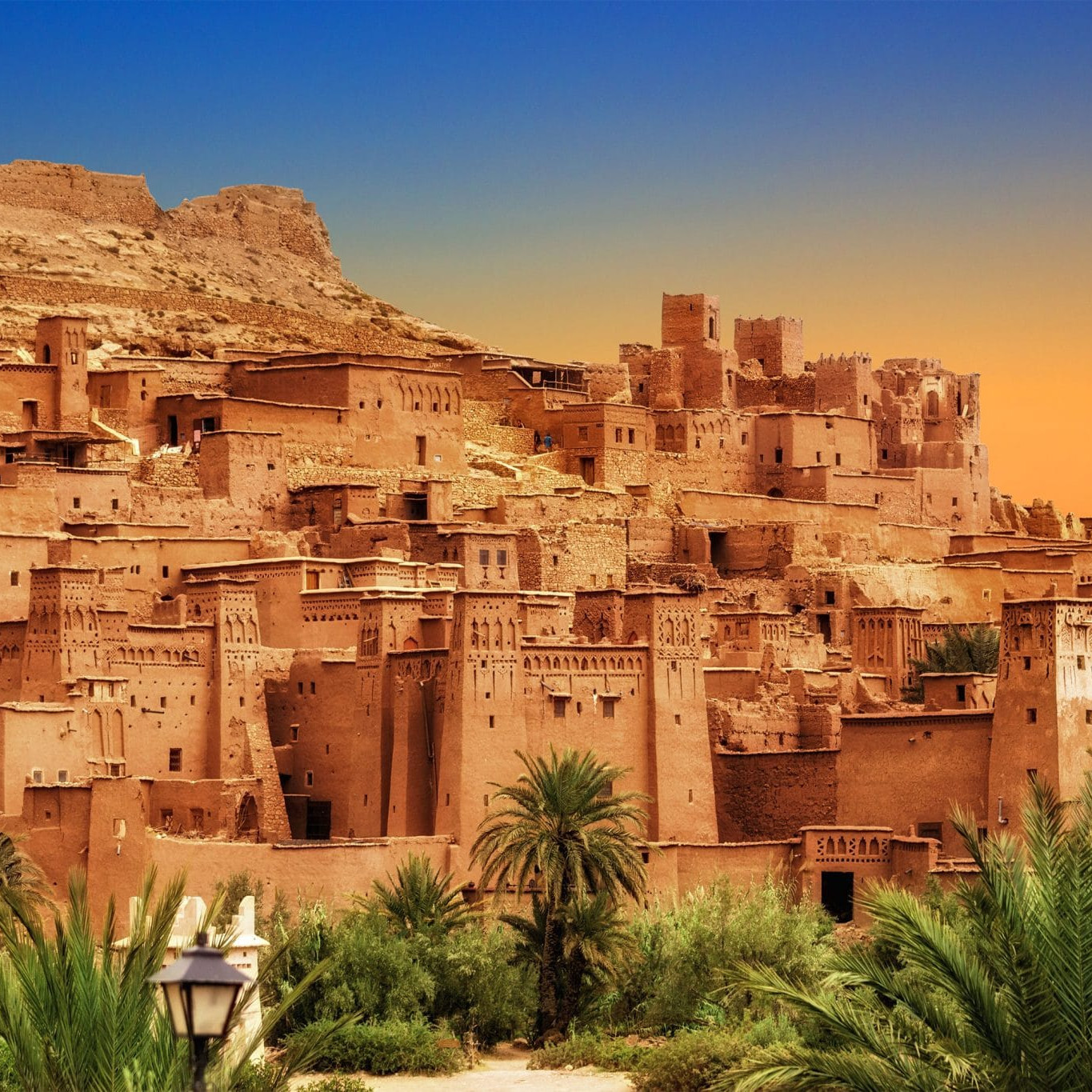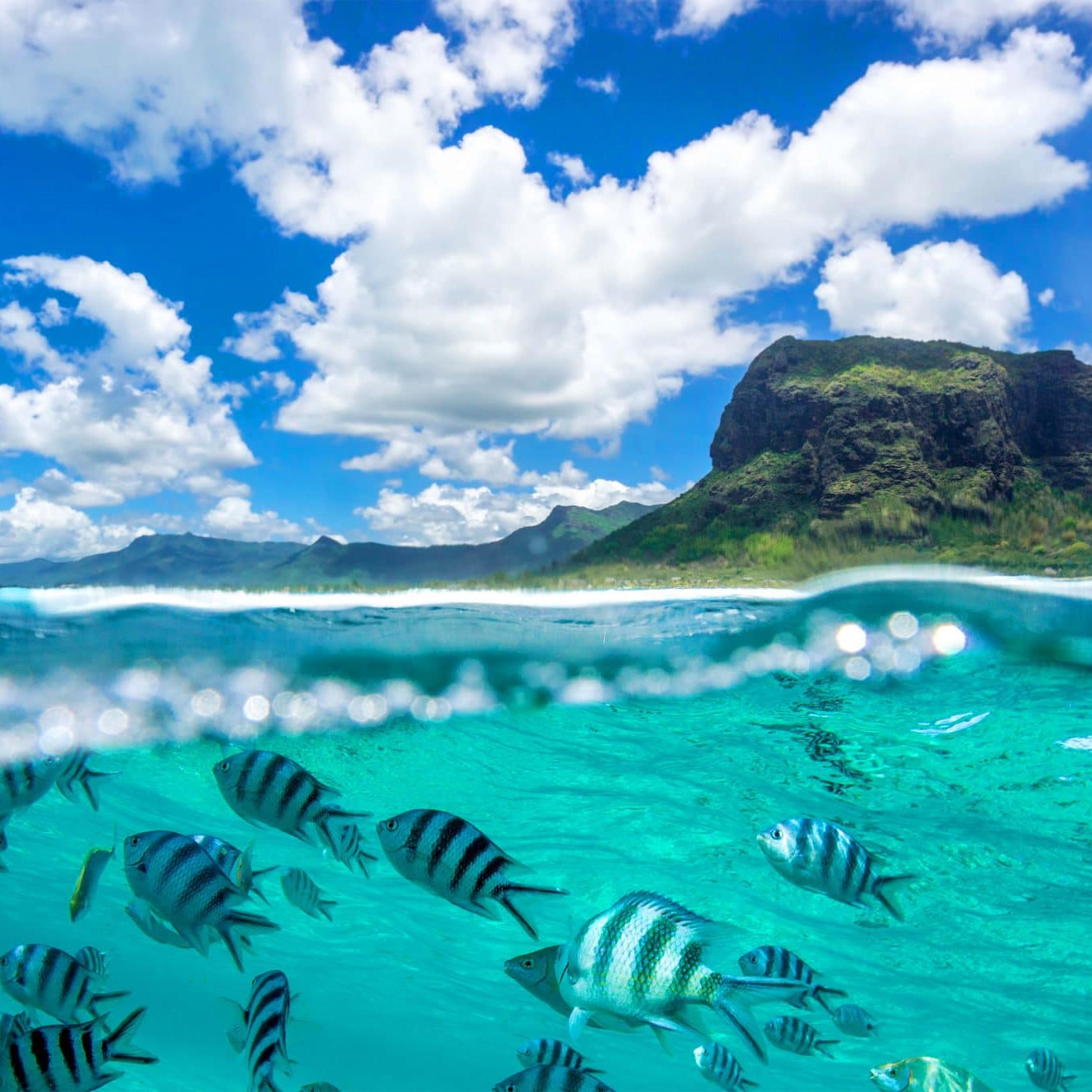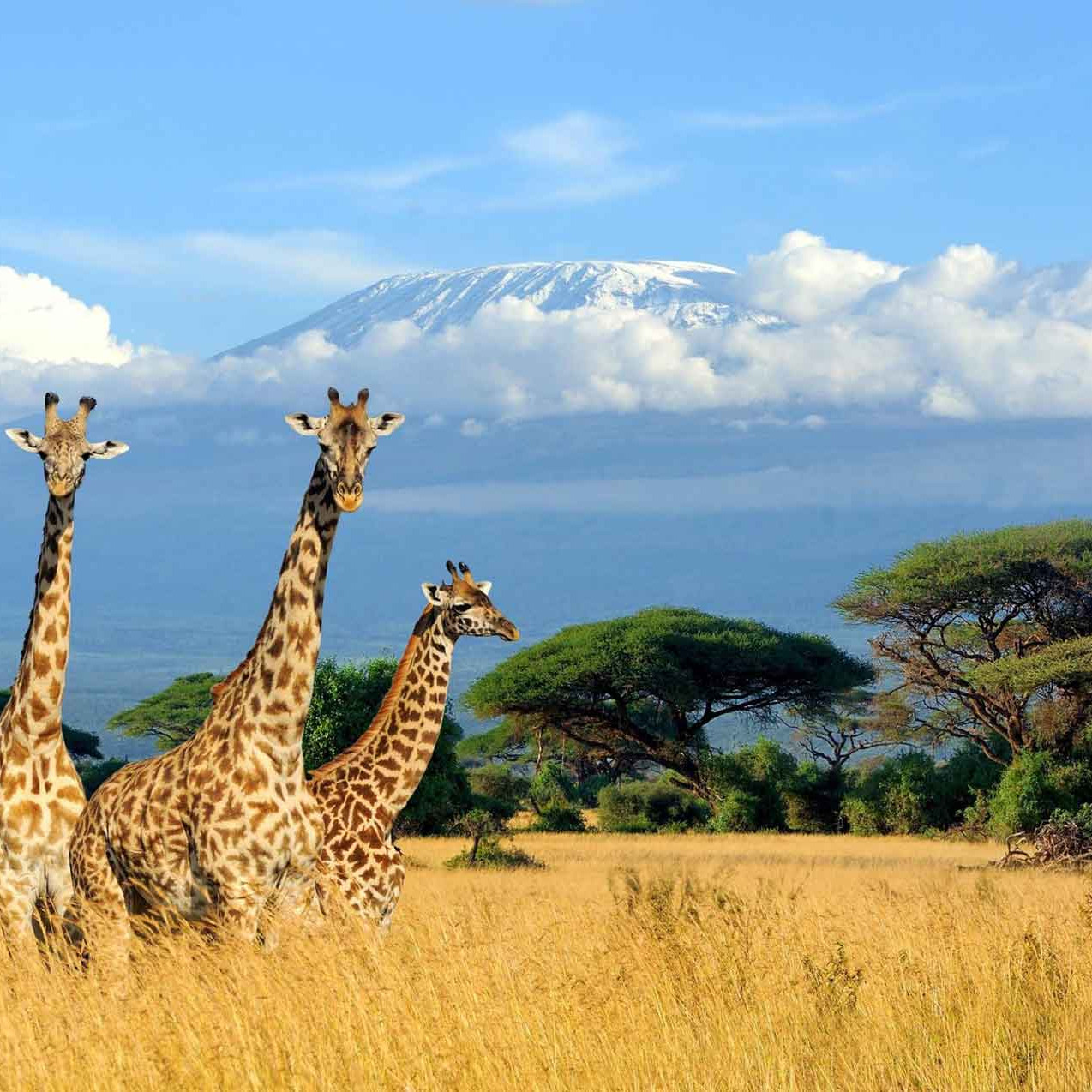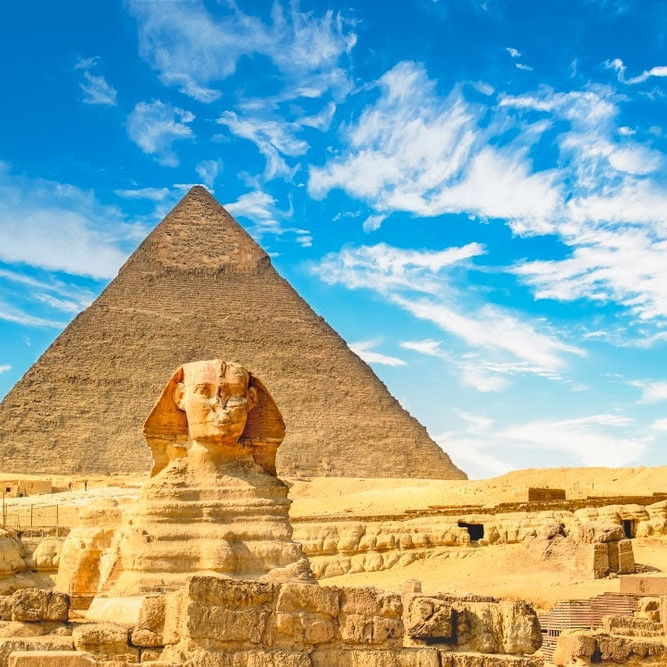The African continent is the second largest and second most populous continent in the world, with a rich cultural heritage and diverse natural landscapes. Travel to Africa and experience an adventure on every corner!
Why Visit
PEOPLE AND CULTURE
The African culture is so diverse that it doesn’t only change from one country to another, but the individual countries themselves are made up of numerous different tribes and ethnic groups. Art, music, food and oral literature are used in preserving traditions; and the different tribes take pride in their distinct customs.
FOOD
There are quite a lot of African food recipes across the continent, as diverse in their making as their different cultures; with each region and country offering its own unique culinary traditions and specialties.
LANDMARKS
The beauty of the African nature and landmarks is undeniable, highlighting some must see places that stand out above the rest like the Mount Kilimanjaro, The Pyramids of Giza in Egypt or the Victoria Falls in Zimbabwe and Zambia.
WILDLIFE
The African continent is renowned for its incredible wildlife, with the “Big Five” – lions, leopards, rhinos, elephants, and buffalos – drawing tourists from all over the world to embark on safaris and explore the continent’s stunning natural beauty.

The African continent is the second largest and second most populous continent in the world, with a rich cultural heritage and diverse natural landscapes. Travel to Africa and experience an adventure on every corner!

Why Visit
PEOPLE AND CULTURE: The African culture is so diverse that it doesn’t only change from one country to another, but the individual countries themselves are made up of numerous different tribes and ethnic groups. Art, music, food and oral literature are used in preserving traditions; and the different tribes take pride in their distinct customs.
FOOD: There are quite a lot of African food recipes across the continent, as diverse in their making as their different cultures; with each region and country offering its own unique culinary traditions and specialties.
LANDMARKS: The beauty of the African nature and landmarks is undeniable, highlighting some must see places that stand out above the rest like the Mount Kilimanjaro, The Pyramids of Giza in Egypt or the Victoria Falls in Zimbabwe and Zambia.
WILDLIFE: The African continent is renowned for its incredible wildlife, with the “Big Five” – lions, leopards, rhinos, elephants, and buffalos – drawing tourists from all over the world to embark on safaris and explore the continent’s stunning natural beauty.
Favorite
DESTINATIONS
Bucket list
How to get around
Getting around Africa can vary depending on the country or region, but generally, there are several transportation options available to travelers. One of the most common ways to get around Africa is by air, with many international airlines offering flights to major cities and regional carriers offering domestic flights. However, air travel can be expensive and limited in some parts of the continent. Another option is to use local buses or taxis, which can be a more affordable and authentic way to explore the continent, but can also be less comfortable and potentially unsafe. For longer distances, trains can be a good option, with some countries offering scenic train journeys, such as the Blue Train in South Africa or the Marrakech Express in Morocco. Alternatively, for a more adventurous journey, overland trucks and tours can take travelers off the beaten path and offer a unique perspective on the continent. Ultimately, the best way to get around Africa will depend on individual preferences, budget, and itinerary.
Money Saving Tips
- Travel during the low season: Prices for accommodation, flights, and tours tend to be lower during the low season, which varies depending on the country and region. Be sure to research the best time to visit each destination and plan your trip accordingly.
- Stay in budget accommodation: Hostels, guesthouses, and camping sites can offer affordable accommodation options in Africa. Look for places that offer shared facilities or dorm rooms to save on costs.
- Eat local food: Street food and local restaurants can be much cheaper than Western-style restaurants or hotel dining, and can also offer a more authentic culinary experience. Be sure to try local dishes and explore the food markets.
- Use public transportation: Taxis and private transfers can be expensive in Africa, so consider using local buses, minibusses, or shared taxis instead. It may not be as comfortable, but it can save you a lot of money.
- Negotiate prices: Haggling is common in Africa, so don’t be afraid to negotiate prices for tours, souvenirs, and other purchases. However, be respectful and fair in your negotiations.
- Plan in advance: Booking flights, accommodation, and tours in advance can often save you money. Research online and look for deals and discounts.
- Travel with a group: Traveling with a group of friends or joining a group tour can help you split costs and save money on accommodation, transportation, and activities.
What to expect in Africa
LANGUAGE
Africa is a continent with a very high linguistic diversity, there are an estimated 1500-2000 African languages/dialects. There are about two dozen African countries where English is spoken as official language, most of them are former British colonies.
ELECTRICITY
There is no fully universal plug available for Africa, as they are 3 different types of plugs depending on the country you are going to. Try to research in advance and find out which one they use to where you are going. You could always buy one in the airport anyway.
CURRENCY
Most African countries have their own unique currency, although some share the same currency with several other states. You’ll need to find out the local currency for your destination.
SAFETY
Africa is a vast and diverse continent with varying levels of safety depending on the country and region. While there are some areas of Africa that have higher levels of crime, political instability, or terrorism, many areas are safe for tourists to visit. It is important to research the safety situation in each destination before traveling and to take appropriate precautions, such as avoiding certain areas or traveling with a local guide. Additionally, travelers should always be aware of their surroundings, keep their valuables secure, and avoid carrying large amounts of cash or displaying expensive items.
WEATHER
Africa is the hottest continent on earth; dry lands and deserts comprise 60% of the entire land surface. Most of Africa is in the tropics, and except for the peaks of mountains in the Great Rift Valley.
PASSPORT
Remember that many countries require that your passport be valid for at least six months (some just three months) after your arrival date before they’ll grant entry to their country. Some of them also require a VISA to enter the country depending on your nationality. Plan in advance and make sure you have everything in order.
How to get around
Getting around Africa can vary depending on the country or region, but generally, there are several transportation options available to travelers. One of the most common ways to get around Africa is by air, with many international airlines offering flights to major cities and regional carriers offering domestic flights. However, air travel can be expensive and limited in some parts of the continent. Another option is to use local buses or taxis, which can be a more affordable and authentic way to explore the continent, but can also be less comfortable and potentially unsafe. For longer distances, trains can be a good option, with some countries offering scenic train journeys, such as the Blue Train in South Africa or the Marrakech Express in Morocco. Alternatively, for a more adventurous journey, overland trucks and tours can take travelers off the beaten path and offer a unique perspective on the continent. Ultimately, the best way to get around Africa will depend on individual preferences, budget, and itinerary.
Money Saving Tips
- Travel during the low season: Prices for accommodation, flights, and tours tend to be lower during the low season, which varies depending on the country and region. Be sure to research the best time to visit each destination and plan your trip accordingly.
- Stay in budget accommodation: Hostels, guesthouses, and camping sites can offer affordable accommodation options in Africa. Look for places that offer shared facilities or dorm rooms to save on costs.
- Eat local food: Street food and local restaurants can be much cheaper than Western-style restaurants or hotel dining, and can also offer a more authentic culinary experience. Be sure to try local dishes and explore the food markets.
- Use public transportation: Taxis and private transfers can be expensive in Africa, so consider using local buses, minibusses, or shared taxis instead. It may not be as comfortable, but it can save you a lot of money.
- Negotiate prices: Haggling is common in Africa, so don’t be afraid to negotiate prices for tours, souvenirs, and other purchases. However, be respectful and fair in your negotiations.
- Plan in advance: Booking flights, accommodation, and tours in advance can often save you money. Research online and look for deals and discounts.
- Travel with a group: Traveling with a group of friends or joining a group tour can help you split costs and save money on accommodation, transportation, and activities.
What to expect in Africa
LANGUAGE
Africa is a continent with a very high linguistic diversity, there are an estimated 1500-2000 African languages/dialects. There are about two dozen African countries where English is spoken as official language, most of them are former British colonies.
ELECTRICITY
There is no fully universal plug available for Africa, as they are 3 different types of plugs depending on the country you are going to. Try to research in advance and find out which one they use to where you are going. You could always buy one in the airport anyway.
CURRENCY
Most African countries have their own unique currency, although some share the same currency with several other states. You’ll need to find out the local currency for your destination.
SAFETY
Africa is a vast and diverse continent with varying levels of safety depending on the country and region. While there are some areas of Africa that have higher levels of crime, political instability, or terrorism, many areas are safe for tourists to visit. It is important to research the safety situation in each destination before traveling and to take appropriate precautions, such as avoiding certain areas or traveling with a local guide. Additionally, travelers should always be aware of their surroundings, keep their valuables secure, and avoid carrying large amounts of cash or displaying expensive items.
WEATHER
Africa is the hottest continent on earth; dry lands and deserts comprise 60% of the entire land surface. Most of Africa is in the tropics, and except for the peaks of mountains in the Great Rift Valley.
PASSPORT
Remember that many countries require that your passport be valid for at least six months (some just three months) after your arrival date before they’ll grant entry to their country. Some of them also require a VISA to enter the country depending on your nationality. Plan in advance and make sure you have everything in order.
SUBSCRIBE!
Are you a globetrotter? Join our platform and get exclusive travel tips, getaways and more!
Zambia
Travel and explore Zambia. Filled unspoilt natural wonders, abundant wildlife and a big list of adventures and activities to fit any tourist.
Zimbabwe
Travel Zimbabwe, the hidden gem of Africa. It is emerging from a lot of years of political and economical problems. An exclusive destination..
Tanzania
Travel Tanzania, a prefered safari destination and also home to the highest mountain in Africa and the largest and deepest lakes in the..
South Africa
Travel and explore South Africa, a country located in the southern tip of the african continent, filled with incredible wildlife, adventure..
Seychelles
Travel The Seychelles, an archipelago made of 115 islands in the Indian Ocean. Much more than just an exotic beach, with mix of cultures..
Namibia
Travel to Namibia, a beautiful and diverse country known for its stunning natural landscapes and wildlife-rich national parks...
Morocco
Morocco, Mythical, colorful, exotic and diverse, and just some of the reasons why everybody should go at least once.
Mauritius
Travel Mauritius, a country renowned for its natural beauty, pristine beaches, and clear turquoise waters. The island is a perfect...
Kenya
Travel Kenya, from exotic wildlife, being one of the prefered safari destinations in Africa and featuring animal migrations, to pristine..
Egypt
Explore Egypt's rich history with travel tips to Cairo, Luxor, and beyond. Discover pyramids, temples, Nile cruises, and hidden...
Zimbabwe
Travel Zimbabwe, the hidden gem of Africa. It is emerging from a lot of years of political and…
South Africa
Travel and explore South Africa, a country located in the southern tip of the african continent,…
Seychelles
Travel The Seychelles, an archipelago made of 115 islands in the Indian Ocean. Much more than just…
Namibia
Travel to Namibia, a beautiful and diverse country known for its stunning natural landscapes and…
Morocco
Morocco, Mythical, colorful, exotic and diverse, and just some of the reasons why everybody should…
Mauritius
Travel Mauritius, a country renowned for its natural beauty, pristine beaches, and clear turquoise…


